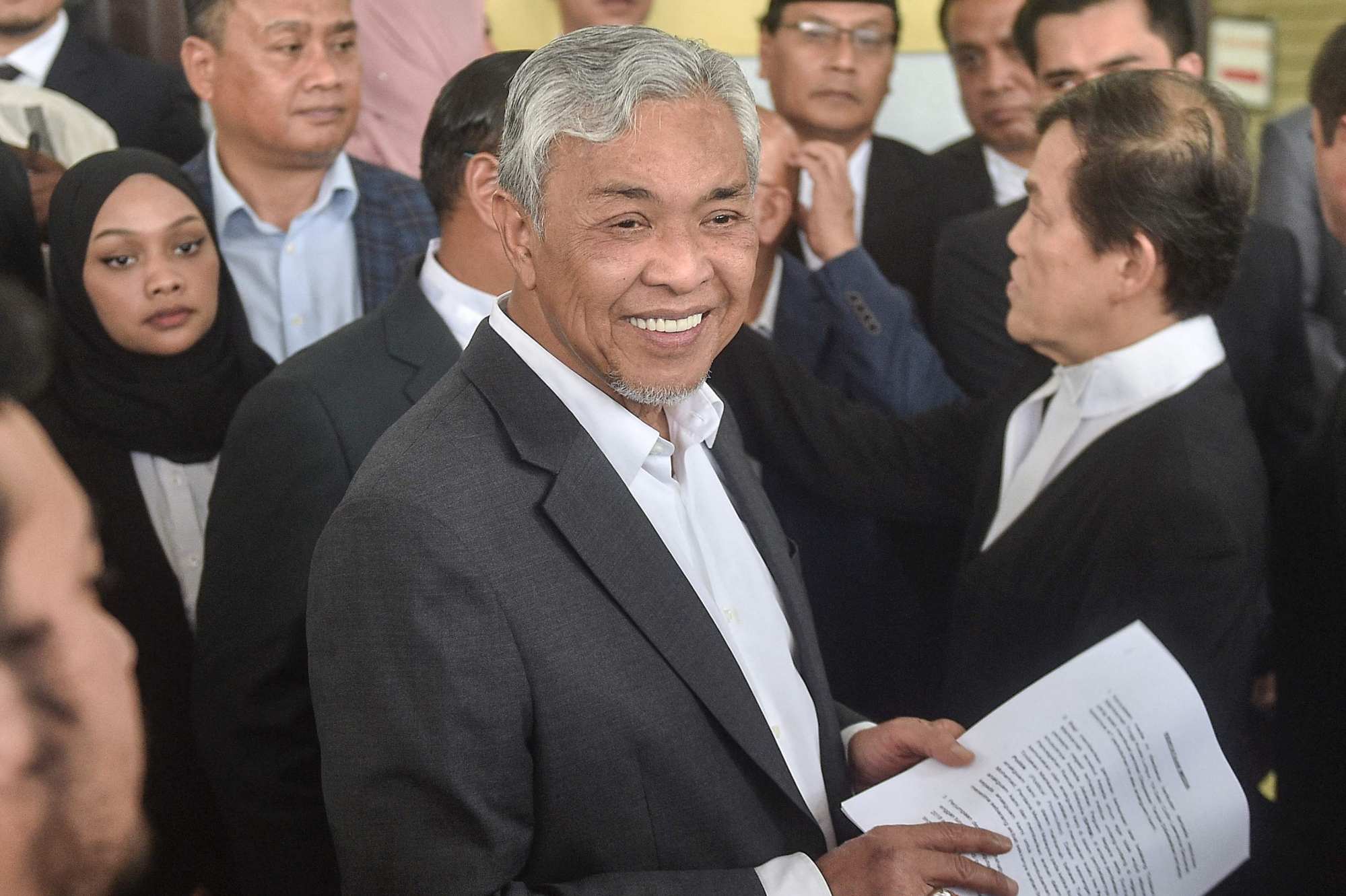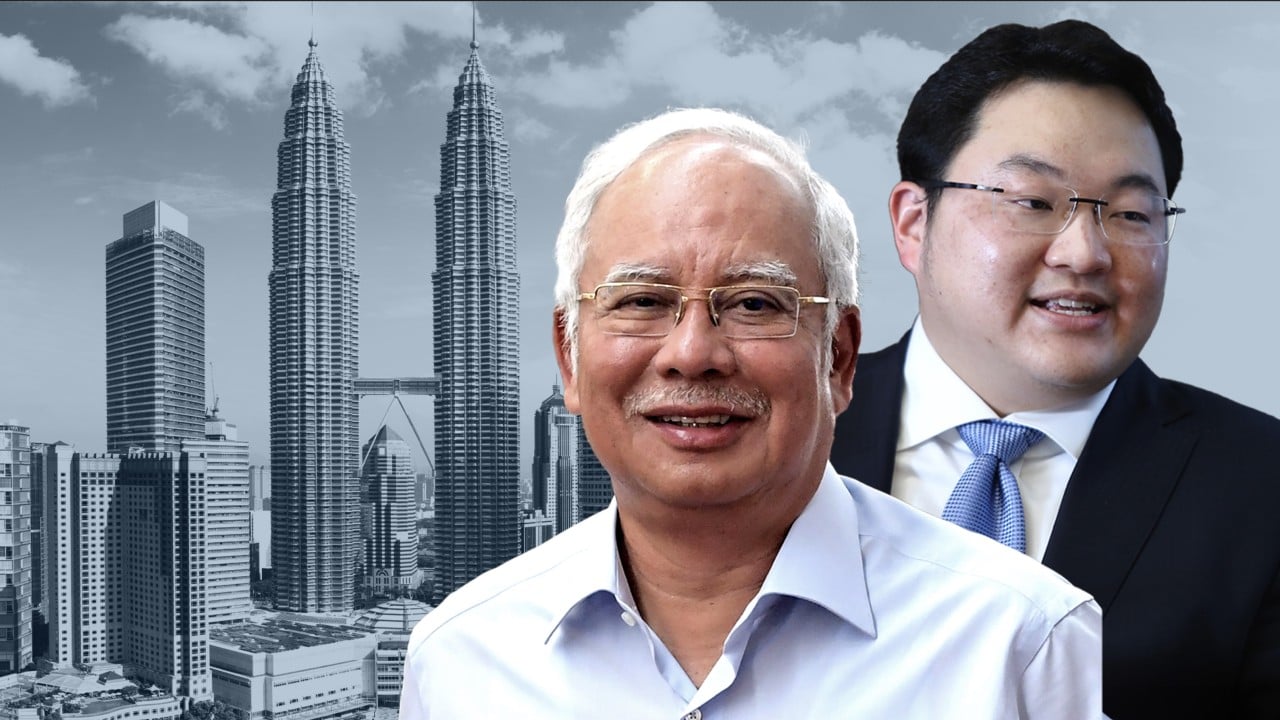
Malaysia PM Anwar’s cabinet reshuffle brings in 5 new faces, shakes up administration
- The changes increase the total number of ministers from 28 to 31, including a new finance minister
- Anwar Ibrahim said the cabinet readjustment was necessary due to the changing situation, including economic and international factors
The five new ministers and deputy ministers will be in charge of the health, human resources, plantations and commodities, and digital portfolios. One new minister will also assist Anwar at the Finance Ministry.
My personal view is that the ministry of finance … must have a strong professional team so that we are on the right track
The new second finance minister is CEO of Malaysia’s Employees Provident Fund, Amir Hamzah Azizan, who has no prior political experience but has worked for over 25 years at national energy company Tenaga Nasional, Petronas and Shell among others.
“My personal view is that the ministry of finance, other than [being] headed by me, must have a strong professional team so that we are on the right track and not pressured and sidelined by political pressures,” Anwar said.
Speaking at a special press conference on Tuesday to announce the new line-up, Anwar said that after his first year in office, there was a need to readjust his cabinet.
‘Nothing’s been done’: has Malaysia’s Anwar lost momentum to make reforms?
“Situations change, not just looking at past performance but due to economic growth and the cost of living that needs to be managed well, and also international acceptance,” he said.
The long-rumoured reshuffle came just two days after Anwar had boasted that cooperation within his government was “solid” and “concrete”.
“There has not been a single dispute in the cabinet in the name of party differences,” Anwar said at the closing speech of a weekend celebration marking his administration’s first anniversary in Kuala Lumpur. “We have the strength now, we do not focus on political disputes, we focus on elevating the country’s dignity.”
With the latest change, the cabinet is now composed of 31 full ministers and 29 deputy ministers, an increase of two deputies bringing the total up from 55 to 60 ministers and deputies.
While a reshuffle will be welcomed, the idea of a bigger cabinet is not popular with the Malaysian public who will compare it to other countries such as Britain, with 22 members, and the US, with 25.
Analyst James Chin said that Anwar was being too cautious and had missed an opportunity to send a stronger message with the reshuffle.
“He seems very reluctant to do anything to rock the boat,” Chin, a professor of Asian studies at the University of Tasmania, told This Week in Asia.

While some of his ministers have been pushing for fundamental changes, such as the progressive wage policy championed by his economics minister, Anwar has not been seen to back such ambitious plans or anything else that would send a stronger signal to those sceptical of his administration, Chin said.
Azmi Hassan, a senior fellow at the Nusantara Academy for Strategic Research, applauded the appointment of a technocrat such as Amir to be the second finance minister as well as the reappointment of Dr Dzulkefly Ahmad to the health ministry, calling it “a good move”.
Malaysia’s new focus on renewable energy to replace its dependence on fossil fuel will see that sector elevated under the purview of Deputy Prime Minister Fadhillah Yusof, who will also be in charge of Sabah and Sarawak affairs.
Green hydrogen: Malaysia’s clean energy saviour or a ‘dangerous distraction’?
His previous portfolio in plantations and commodities will be passed to newly minted minister Johari Ghani who was a former second finance minister under Najib.
Other significant changes include the return of Covid-era health minister Dzulkefly, replacing Dr Zaliha Mustafa, who will be moving to the ministry in charge of Kuala Lumpur; and defence minister Mohamad Hassan moving into the foreign ministry, replacing Zambry Abdul Kadir, who is moving to the higher education ministry.
The health ministry – having been battered by Covid – has received criticism recently over hospital congestion as well as the placement and working conditions of doctors, which has led to a continuous exodus of trained medical professionals out of public healthcare.

Announced on December 3 last year, the original composition of the so-called Unity Government cabinet was a compromise made by Anwar, who was only able to form a government by putting together a cautious coalition with a former nemesis in Barisan Nasional as well as their strong allies in East Malaysia, who have traditionally been averse to Anwar’s camp, particularly the Democratic Action Party component.
The situation led to public disgruntlement with the cabinet, with the appointment of scandal-tainted Barisan Nasional chief Ahmad Zahid Hamidi as one of Anwar’s two deputy prime ministers, casting doubt over his claim of being tough against corruption.
Malaysia’s Anwar vows no let-up on anti-graft drive after key ally walks free
The latest survey by independent polling group Merdeka Centre published last month saw Anwar’s approval rating drop to 50 per cent, from 68 per cent in December last year, while approval of the government dipped to 41 per cent from 54 per cent.
Sentiment was largely driven by concerns over the economy, the Merdeka Centre said. Malaysia’s economic growth has slowed sharply this year from 8.7 per cent in 2022 amid lower exports.
Inflation has also moderated, though concerns remain over rising consumer costs due to the weakened ringgit, one of Asia’s worst-performing currencies this year.
Additional reporting by Reuters


